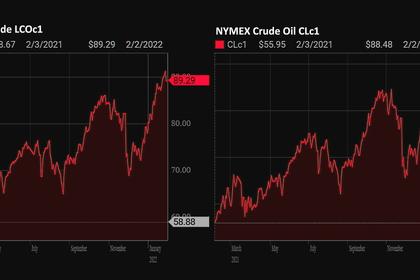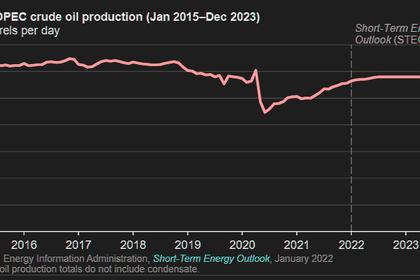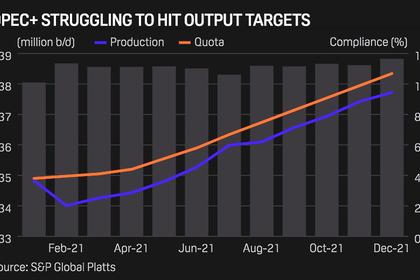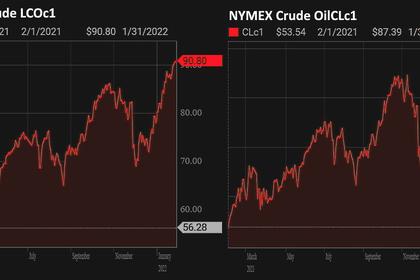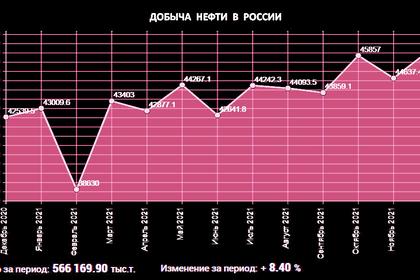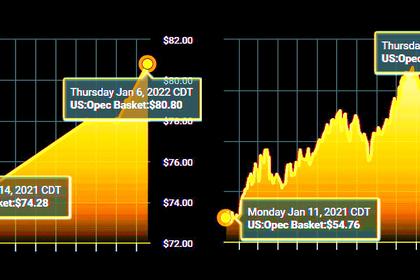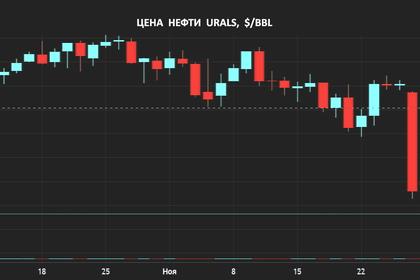ОПЕК+ РОССИЯ: 122%
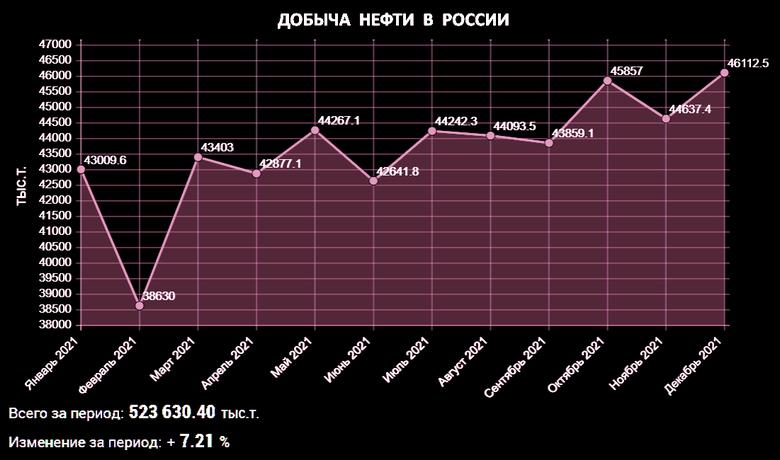
ПРАВИТЕЛЬСТВО РОССИИ - 2 февраля 2022 - Александр Новак провёл 25-ю министерскую встречу стран ОПЕК и не-ОПЕК
Крупнейшие страны – производители нефти приняли решение продолжить в марте наращивать добычу на 400 тыс. баррелей в сутки для сохранения баланса спроса и предложения.
Заместитель Председателя Правительства Александр Новак в качестве сопредседателя провёл 25-е заседание министерской встречи стран ОПЕК и не-ОПЕК. На заседании в режиме видеоконференции было рассмотрено исполнение добровольных обязательств стран – производителей нефти по регулированию добычи в декабре 2021 года, а также прогнозы по развитию ситуации в 2022 году.
По итогам консультаций страны-участницы приняли решение сохранить в действии ранее утверждённые договорённости о продолжении увеличения добычи на суммарно 400 тыс. баррелей в сутки в марте 2022 года.
Было отмечено, что в целом страны ОПЕК+ успешно исполняют рекомендации по наращиванию добычи: исполнение сделки в декабре 2021 года достигало 122%. При этом делегатами была подчёркнута необходимость придерживаться достигнутых договорённостей для тех стран, которые ранее не смогли выполнить свои добровольные обязательства.
Как отметил по итогам заседания Александр Новак, несмотря на сохраняющиеся неопределённости по влиянию заболеваемости штаммом «Омикрон», мировой спрос на нефть и нефтепродукты продолжает расти. Россия, в частности, исполняет сделку на высоких уровнях, близких к 100%, и в марте 2022 года российские нефтекомпании, согласно договорённостям в рамках ОПЕК+, смогут дополнительно увеличить добычу на 100 тыс. баррелей нефти в сутки. «Это даст нам возможность на 90% восстановить уровень сокращённого объёма. Напомню, что в мае 2020 года Россия сократила объём добычи на 2 млн баррелей суточного производства. Таким образом, с учётом принятого решения в марте мы выйдем на восстановление 1,8 млн баррелей суточной добычи», – добавил он.
Проведение следующей, 26-й министерской встречи стран ОПЕК+ запланировано на 2 марта 2022 года.
-----
ОПЕК+ РОССИЯ: 122%

REUTERS - Feb 2 - Oil prices climbed on Wednesday toward last week's seven-year highs as a draw in U.S. crude stocks confirmed strong demand and tightsupplies, but investors remained cautious ahead of an OPEC+ meeting later in the day.
Brent crude rose 11 cents, or 0.1%, to $89.27 a barrel by 0743 GMT, after easing 10 cents on Tuesday.
U.S. West Texas Intermediate crude was up 14 cents, or 0.2%, at $88.34 a barrel, having gained 5 cents the previous day.
Tight global supplies and geopolitical tensions in Eastern Europe and the Middle East have boosted oil prices by about 15% so far this year. On Friday, crude benchmarks hit their highest prices since October 2014, with Brent touching $91.70 and U.S. crude hitting $88.84.
"A drop in U.S. crude inventories provided support, though an increase of gasoline stocks partially offset bullish sentiment," said Satoru Yoshida, a commodity analyst with Rakuten Securities.
"OPEC+ is likely to maintain its policy unchanged, which means a supply shortage and an upward trend in oil prices will continue," he said.
U.S. crude stocks fell by 1.6 million barrels for the week ended Jan. 28, against analysts' estimate of an increase of 1.5 million barrels, according to market sources citing American Petroleum Institute figures on Tuesday.
But gasoline inventories rose by 5.8 million barrels, above analysts' expectations for a 1.6 million barrel build.
The Organization of the Petroleum Exporting Countries and allies, together known as OPEC+, will likely stick to existing policies of moderate output increases on Wednesday, five sources from the producers' group said, even as it expects demand to rise to new peaks this year and as oil prices trade near seven-year highs.
But Goldman Sachs said there was a chance the oil market's rally would prompt a faster ramp-up.
Sources said an OPEC+ technical panel meeting on Tuesday did not discuss a hike of more than the expected 40,000 barrels per day from March.
"If Saudi and Russia show any signs of raising their production to shoulder shortfalls of some members who cannot meet their output targets, oil prices will likely fall," said Tetsu Emori, CEO of Emori Fund Management Inc.
"But if there are no such surprises, the market is expected to keep a bullish trend as demand is recovering and geopolitical tensions linger," he said.
Tensions between Russia and the West also underpinned crude prices. Russia, the world's second-largest oil producer, and the West have been at loggerheads over Ukraine, fanning fears that energy supplies to Europe could be disrupted.
On Tuesday, Russian President Vladimir Putin accused the West of deliberately creating a scenario designed to lure it into war and ignoring Russia's security concerns over Ukraine.
-----


